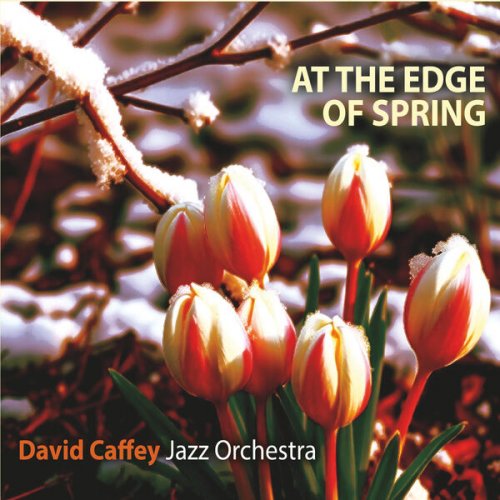Lodi Carr - The Best Voices Time Forgot- Ladybird - All About Norma (2021)
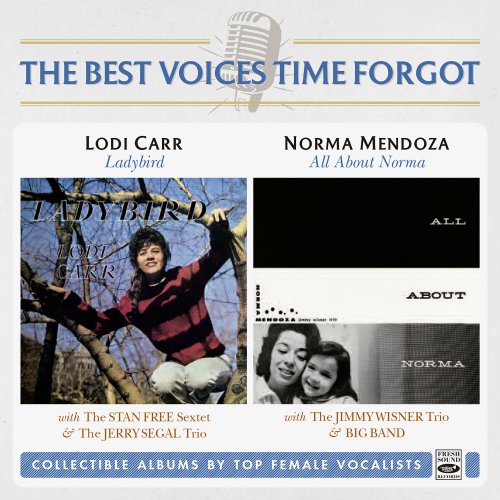
Artist: Lodi Carr, Norma Mendoza
Title: The Best Voices Time Forgot: Ladybird - All About Norma
Year Of Release: 2021
Label: The Best Voices Time Forgot
Genre: Jazz, Vocal Jazz
Quality: Mp3 320 kbps / FLAC (tracks)
Total Time: 64:16 min
Total Size: 171 / 325 MB
WebSite: Album Preview
Tracklist:Title: The Best Voices Time Forgot: Ladybird - All About Norma
Year Of Release: 2021
Label: The Best Voices Time Forgot
Genre: Jazz, Vocal Jazz
Quality: Mp3 320 kbps / FLAC (tracks)
Total Time: 64:16 min
Total Size: 171 / 325 MB
WebSite: Album Preview
01. The Masquerade Is Over (Magidson-Wrubel) 4:06
02. Tumble-In-Down (Free-Mellin) 2:46
03. When I Fall In Love (Young-Heyman) 2:54
04. For You Just for You (Free-Rossiter) 2:49
05. My Ship (Weill-Gershwin) 4:19
06. Lady Bird (Dameron-Turner) 2:38
07. I'm Lost (Otis René) 3:47
08. There'll Never Be Another You (Warren-Gordon) 1:56
09. If I Should Lose You (Rainger-Robin) 3:28
10. Deed I Do (Hirsch-Rose) 1:48
11. Blue Room (Rodgers-Hart) 2:44
12. Sidney's Soliloquy (Jimmy Wisner) 3:50
13. Little Norma (Jimmy Wisner) 2:50
14. Black Is the Color (Traditional) 2:39
15. When Sunny Gets Blue (Fisher-Segal) 3:02
16. Our Love Is Here to Stay (G. & I. Gershwin) 1:59
17. Warm (Jimmy Wisner) 3:04
18. Dreamy Eyes (Niehaus-Wisner) 3:58
19. I Don't KnowWhat Time ItWas (Rodgers-Hart) 2:13
20. Just In Time (Styne-Comden-Green) 1:53
21. And Then There Were None (Potato Chips) (Jimmy Wisner) 2:03
22. My Funny Valentine (Rodgers-Hart) 3:50
23. If It's Love (Jimmy Wisner) 1:54
Ladybird
Singer Lodi Carr (1933), also known as Ladybird, acquired her considerable musicianship during the late '40s and early '50s from an impressive roster of Detroit musicians, all part of the main core of men who were powering the resurgence of modern jazz in the Motor City. It was among such inspiring environment that she galvanized her distinctive, straight-ahead delivery, full of keen understanding and good taste. Those strengths are what in turn helped her attract some of the most distinguished musicians to her engagements when she eventually moved to New York in 1957. "Ladybird," recorded in 1960, was her first and only album. By then she was already a seasoned singer, so nothing feels frantic or hurried. Her voice is deep, with a rich and direct approach, and she sings with a good sense of timing and rhythm. Stan Free’s sextet provided Lodi with some well conceived and functional background arrangements, and in two tracks we hear her backed by the Jerry Segal Trio, bringing to the table some versatile and swinging rhythmic accompaniment that does much to enhance this album’s appeal.
All About Norma
Legendary radio disc jockey Sid Mark based in Philadelphia heard Norma Mendoza’s first TV appearance in October 1959. She was singing Jimmy Wisner’s instrumental tune Sidney ’s Soliloquy which had no lyrics, so the composer had to write some to fit Norma’s translucent voice. After the song was over, the DJ announced that she was a great talent, and this, from the man who had brought the great Nina Simone out of limbo, was no easy compliment. Norma is a completely natural singer with classical training, driven by clear diction and imaginative phrasing. Her voice is somewhere between an alto and a mezzo-soprano, conferring her a remarkable two-octave range and a slight sultry edge. With the supportive backing of the Jimmy Wisner Trio, Norma managed to stamp her personality, cool reading and sophisticated approach on the collection of engaging performances that is "All About Norma."
Singer Lodi Carr (1933), also known as Ladybird, acquired her considerable musicianship during the late '40s and early '50s from an impressive roster of Detroit musicians, all part of the main core of men who were powering the resurgence of modern jazz in the Motor City. It was among such inspiring environment that she galvanized her distinctive, straight-ahead delivery, full of keen understanding and good taste. Those strengths are what in turn helped her attract some of the most distinguished musicians to her engagements when she eventually moved to New York in 1957. "Ladybird," recorded in 1960, was her first and only album. By then she was already a seasoned singer, so nothing feels frantic or hurried. Her voice is deep, with a rich and direct approach, and she sings with a good sense of timing and rhythm. Stan Free’s sextet provided Lodi with some well conceived and functional background arrangements, and in two tracks we hear her backed by the Jerry Segal Trio, bringing to the table some versatile and swinging rhythmic accompaniment that does much to enhance this album’s appeal.
All About Norma
Legendary radio disc jockey Sid Mark based in Philadelphia heard Norma Mendoza’s first TV appearance in October 1959. She was singing Jimmy Wisner’s instrumental tune Sidney ’s Soliloquy which had no lyrics, so the composer had to write some to fit Norma’s translucent voice. After the song was over, the DJ announced that she was a great talent, and this, from the man who had brought the great Nina Simone out of limbo, was no easy compliment. Norma is a completely natural singer with classical training, driven by clear diction and imaginative phrasing. Her voice is somewhere between an alto and a mezzo-soprano, conferring her a remarkable two-octave range and a slight sultry edge. With the supportive backing of the Jimmy Wisner Trio, Norma managed to stamp her personality, cool reading and sophisticated approach on the collection of engaging performances that is "All About Norma."
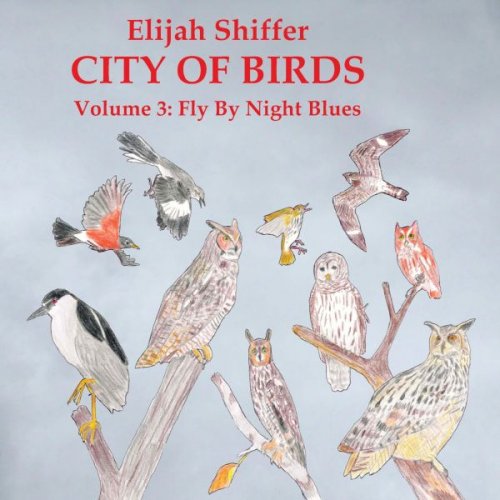
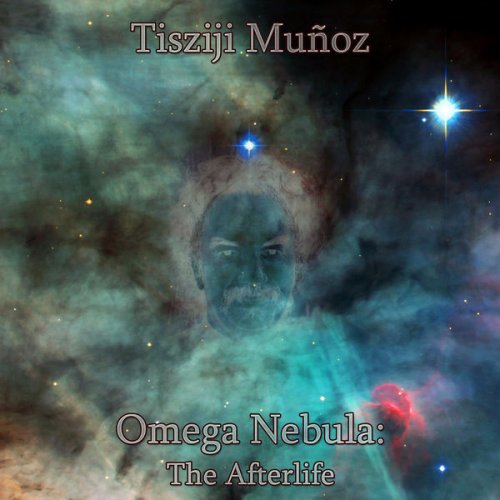
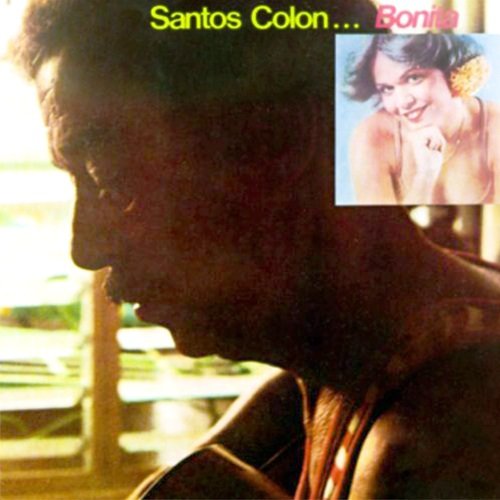
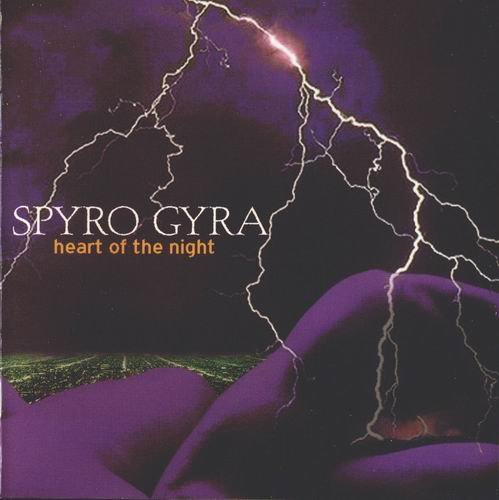
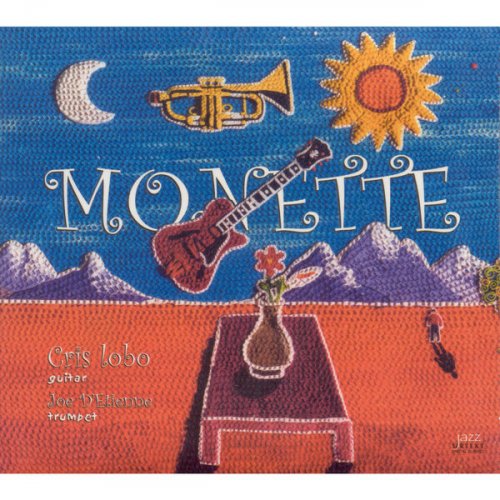
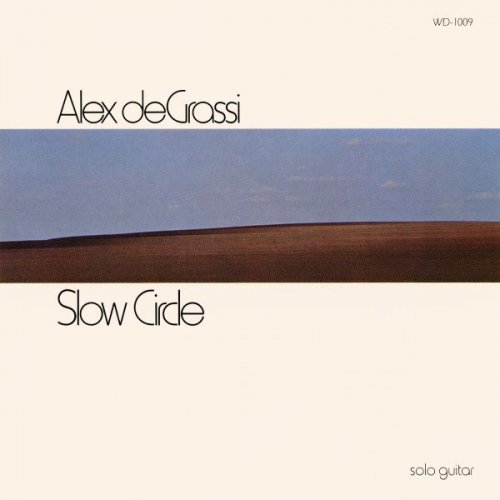
![Daniel Charles Hunt - Inside Passages (2016) [Hi-Res] Daniel Charles Hunt - Inside Passages (2016) [Hi-Res]](https://img.israbox.com/img/2025-12/31/ob0txzlhdydrwm0a1bjrghxmi.jpg)

